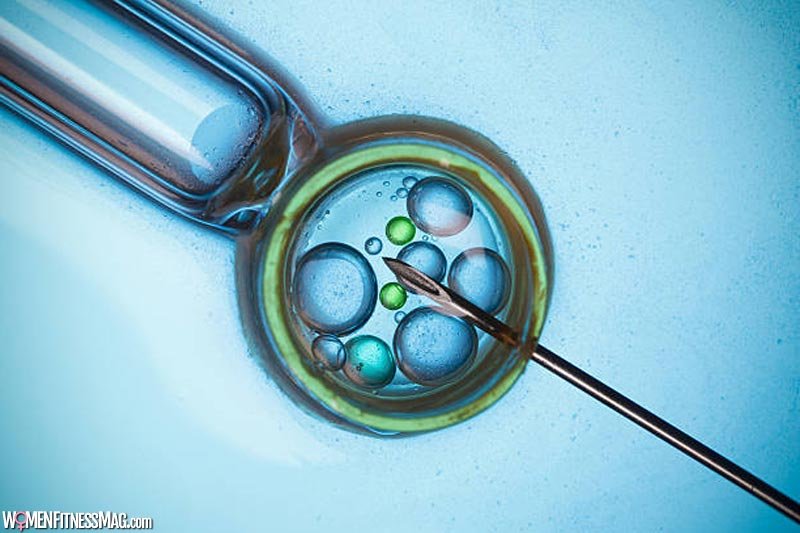Implantation Failure During IVF Treatment: What Causes It? Health and lifestyle factors affecting one or both parents may impact the success of IVF treatment.
Many women mistakenly believe that their uterus is defective or that their bodies cannot accept the embryo that they are rejecting or destroying.
In this article, the experts at Nisha IVF Center, the leading IVF hospital in Ahmedabad, have discussed the causes of implantation failure during IVF treatment.
After all, fertilization was performed in a laboratory. In most cases, the embryo developed in vitro, and they were able to see their embryo. When an egg and sperm combine, an embryo is formed.
The blastocyst stage occurs during an IVF cycle when the embryo splits immediately and enters or is transferred to the uterus on day three or day five. As a result, the embryo’s implantation is booming, and the endometrium is receptive. Implantation is the process of attaching a blastocyst-stage embryo to the endometrial lining of the uterus for it to develop into a baby.
As a result, people naturally assume that healthy embryos are designed to implant and that their uterus or body is malfunctioning if they don’t. Some of the reasons for implantation collapse through IVF treatment are listed below:
The quality of the egg or sperm
High-quality egg and sperm are essential components for a healthy embryo. According to the experts at Nisha IVF Center, the excellent IVF hospital in Ahmedabad, using the highest-quality sperm and eggs through IVF is critical because healthy embryos have the best chance of implanting in the womb.
Unfortunately, the quality of eggs and sperm can be harmed by a variety of factors. Sperm abnormalities can also cause recurrent implantation failure. Damage to sperm genetic material, also known as DNA fragmentation, can affect the development of an embryo and, as a result, the chances of implantation.
A woman’s chronological age
Women’s age has a significant impact on their overall health and fertility, and they are most fertile in their teens and early twenties.
According to the experts at Nisha IVF Center, Ahmedabad’s excellent IVF hospital, the quality and quantity of an egg are both affected by its age. After the age of 35, a woman’s egg quality begins to deteriorate. In their 30s and 40s, their fertility begins to wane.
This means that eggs from older women have a lower chance of implanting successfully in the uterine wall.
Chromosomal abnormalities in embryos
Chromosomal variations within the embryo frequently cause recurrent implantation failure.
Chromosomes are DNA-containing structures that are found inside cells. Each egg and sperm contain 23 DNA-storing chromosomes, all passed down from one parent to the other through fertilization, providing the embryo with 46 chromosomes.
During the embryogenesis process, however, chromosomal errors can occur. Aneuploidy refers to abnormalities in the number of chromosomes present and structural changes that affect chromosome size or how DNA is organized within them.
It’s also possible to increase the amount of genetic material in the embryo. Regardless of the type of defect, Chromosomal abnormalities in the embryo are far less likely to result in continued pregnancy.
The age of the female is the most critical factor in chromosomal abnormalities in the embryo. A structural rearrangement in a person’s chromosomes, on the other hand, can be present at birth, predisposing them to produce defective eggs or sperm.
This can be discovered using a karyotype test on the individuals who provide the egg and sperm.
The uterus’s encirclement
For an embryo to successfully implant in the uterus, the endometrium requirement undergoes biochemical alterations. In preparation for a healthy embryo, the endometrium thickens and becomes sensitive to potential embryo implantation.
Fibroids, polyps, adenomyosis, hydrosalpinxes, and endometriosis are just some of the conditions that can cause uterine inflammation and scarring. These diseases may make it more difficult for the embryo to implant in the uterine wall in some cases.
Medical conditions and lifestyle choices have an impact.
Health and lifestyle factors affecting one or both parents may have an impact on embryo transfer success.
Diabetes, thyroid disease, other endocrine disorders, autoimmune disorders, and clotting disorders like thrombophilia can stop the embryo from interacting with the endometrium due to underlying medical issues in the mother.
Furthermore, both parents’ alcohol consumption, smoking, and other modifiable lifestyle factors such as poor diet, lack of exercise, and obesity may contribute to repeated implantation failure.
Implant failure is a complex disease with a wide range of causes and mechanisms, and treatment options.
There are a variety of therapy options available depending on the condition. Make an appointment with the IVF treatment Center to discuss your specific needs.
Related Videos about Implantation Failure During IVF Treatment: What Causes It? :
https://www.youtube.com/watch?v=cJM1MRCltf8
Implantation Failure During IVF Treatment: What Causes It?
implantation failure reasons, natural implantation failure symptoms, how to prevent implantation failure, treatment for implantation problems, implantation failure ivf, success after repeated implantation failure, causes of implantation failure in ivf, failed implantation natural conception,




